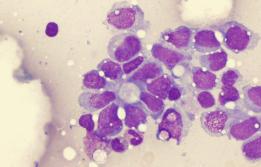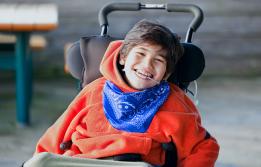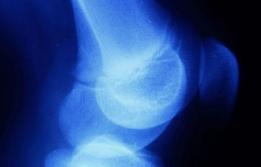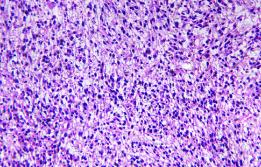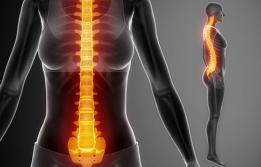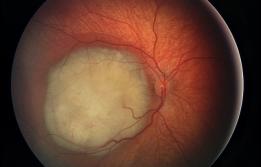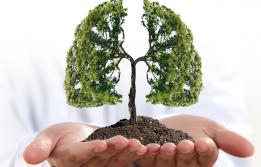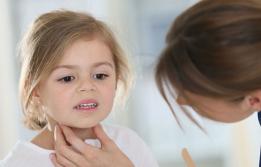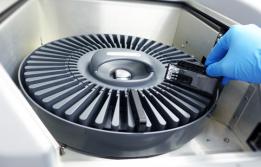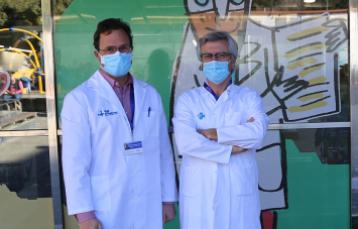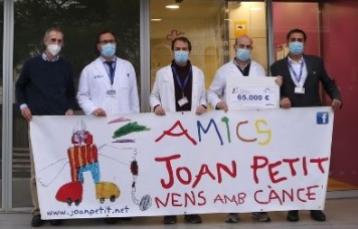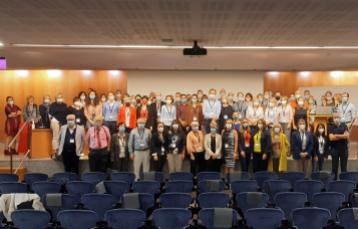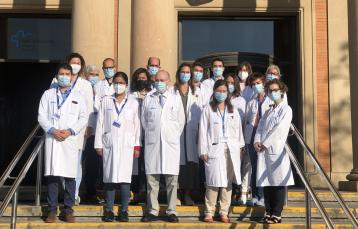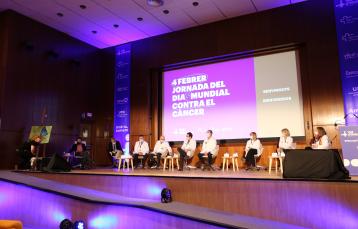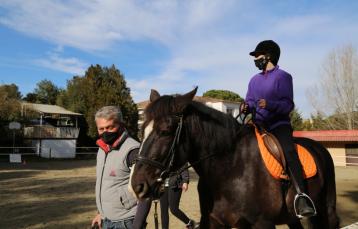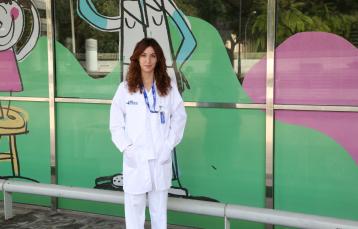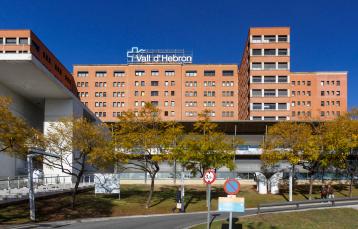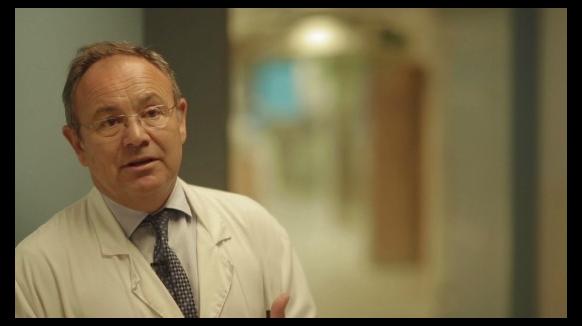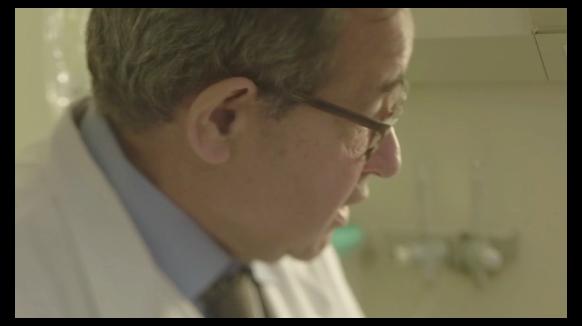Radiation Oncology
Description
The Radiation Oncology Teaching Unit is provided by the Radiation Oncology Department, with the involvement of Haematology, Internal Medicine, Medical Oncology, Radiology, Radiophysics, A&E, and Palliative Care. In Radiation Oncology we attend to patients at the hospital and in the Vall d’Hebron healthcare area of influence, but we are also active in other parts of the country as we are a leading centre for several complex diseases.
We offer a training programme in radiation oncology that includes learning in research. This means taking part in multidisciplinary committees that analyse different pathologies and generate hypotheses for future research projects. Residents integrate into a line of research when they join the programme, assisted by a consultant.
We are part of the Vall d’Hebron Research Institute (VHIR) and the Vall d'Hebron Institute of Oncology (VHIO). We actively participate in different national and international research groups, such as the European Organisation for Research and Treatment of Cancer (EORTC), the International Society of Paediatric Oncology (SIOP), and the Radiation Oncology Clinical Research Group (GICOR).
Accredited places: 1
Download the Unit training programme
Why specialise at Vall d’Hebron?
- Because the training we offer is some of the best, thanks to the exceptional environment in which it takes place. During your training, you will have the chance to carry out rotations in leading hospital departments, such as Medical Oncology, a department at the forefront of translational research and clinical trails, Internal Medicine and Radiodiagnosis.
- Because during your training you will be able to take part in highly complex treatments, such as radiosurgery, intensity-modulated radiation therapy, extracranial radiosurgery, image-guided treatments, total body irridation, and treatments combined with latest generation drugs that would be hard to find in other centres in Catalonia.
- Because the department has some of the highest admissions figures in Spain, enabling you to acquire experience in different areas of knowledge.
- Because we have the most advanced technology to be able to provide highly complex treatments. As a centre, we carry out the greatest number of intensity-modulated radiation therapy treatments for genitourinary disease, head and neck tumours and breast neoplasms in Catalonia. We have regularly incorporated advanced technology, such as extracranial radiosurgery for lung cancer, and tightly-focused treatments that can be delivered much faster, such as RapidArc technology.
- Because we have pioneered the establishment of internal control commissions and the development of protocols for controlled image-guided treatments; proof of our vocation to care quality and safety.
- Because we are a young and dynamic group and a member of several national and international scientific associations, whilst also actively participating in research and teaching activities.
- Because, in parallel, you can acquire basic oncological knowledge from the Radiation Oncology International Master's programme, a distance learning course accredited by Francisco de Vitòria University.
- Because in the final year of your residency you have the option to choose an external rotation in a hospital abroad to deepen your knowledge. This is a chance to learn how a large European or North American oncology centre works in a specific oncological context.











